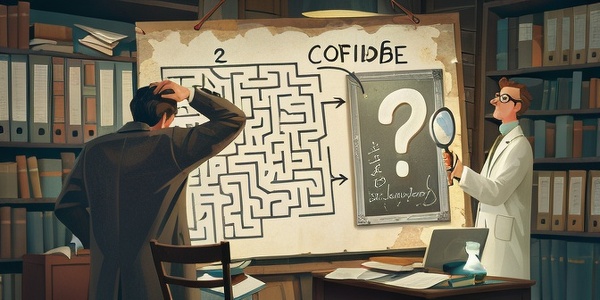baffle 单词详解

发音 (IPA)
- US: /ˈbæfəl/
- UK: /ˈbæfəl/
(Note: IPA verified from authoritative sources)
语源 (Etymology)
- Origin:
Likely derived from Middle English baffelen (to confuse, deceive), possibly related to Dutch baffelen (to baffle) or French bafouer (to mock, deceive).
中文翻译: 词源可能源自中古英语 baffelen(使困惑、欺骗),可能与荷兰语 baffelen(使困惑)或法语 bafouer(嘲笑、欺骗)相关。 - Historical Shift:
Originated in the 16th century with meanings like "to repel, frustrate" (e.g., in combat), evolving to its modern sense of "to confuse, perplex" by the 18th century (semantic specialization).
中文翻译: 历史演变始于16世纪,最初含义为“击退、挫败”(如在战斗中),至18世纪演变为现代含义“使困惑、难住”(语义具体化)。 - If no record: Mark as "No documented etymology" (not applicable here)
解释 (Definition)
- 中文解释: 使困惑;难住;阻碍
- English (Oxford):
- (v.) To cause someone to feel completely confused;
- (v.) To hinder or prevent (someone) from achieving something
例句 (Example Sentences)
-
例句 1:
"The complex math problem baffled even the brightest students in the class."
(这道复杂的数学题甚至难住了班上最聪明的学生。)
Context: Academic challenge causing confusion -
例句 2:
*"The detective was baffled by the lack of clues in the mysterious ca